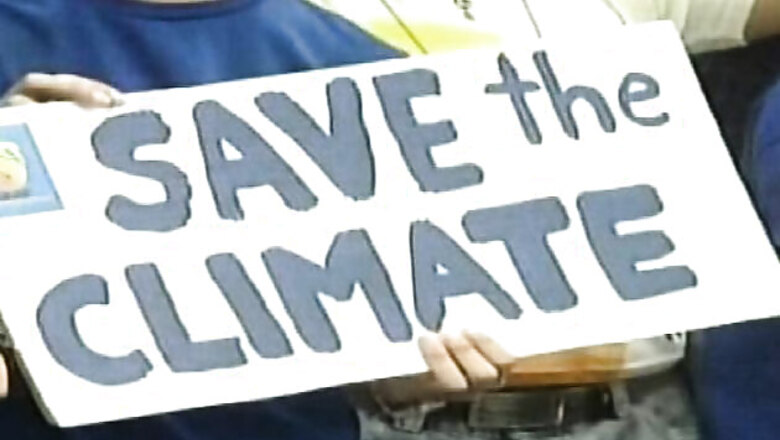
views
One often comes across observations made by even responsible policy makers that climate change negotiations over the past 25 years have achieved nothing. To my mind, it is just not true; tangible progress has been made. This progress may not be as rapid as many environmentalists would like, but nevertheless there has been progress and we can even see the effects in this regard in actual policies and things which are happening on the ground. We can see this in both developing countries such as India and developed countries such as Europe and to some extent even the US. We must understand that climate change mitigation goes to the heart of a country's economic structures and we cannot really expect any overnight shift in economic and energy policies which could have a dramatic impact on GHG mitigation.
For one thing, the technologies are not there as yet. We have to provide the policy and regulatory incentives to enable the technologies to be developed and they are happening.
We had the Kyoto Protocol by which developed countries were assigned targets to reduce their GHGs with an aggregate of about five per cent (United States did not verify). The carbon market in the case of developing countries has led to the Clean Development Mechanism (CDM) which has stimulated far greater innovation and investment in energy efficiency, fuel switching, and renewable energy technologies than has happened in the past two decades. It has also developed skills, technologies and methodologies to enable countries to undertake GHG mitigation projects.
Then we had many countries, both developed and developing, which have put in place their national policies and action plans. In India we had the national action plan on climate change with eight different missions and we see that these missions for most have been running. We have the National Solar Mission, which has, in just two rounds of bidding, reduced the price of the solar energy from Rs 15-16 per kilo watt hour to about half of that in just three years. It is one of the lowest prices of solar in the world.
Then we have the "Perform, Achieve, Trade (PAT)" mechanism which is intended to provide incentives and penalties for large companies that consume energy and to reduce their energy consumption and decrease their emission of GHGs.
We have the renewable energy portfolio standards and renewable energy trading which is also up and running. As a result of these initiatives, the implicit price of carbon in India is at $40 per kg of CO2 equivalent which is much higher than the implicit price of carbon in the US or what you have in other developed countries like the EU member nations.
In the above stated context, I hope that the Delhi Sustainable Development Summit (DSDS) 2013 will have some enriching debates and discussions and this platform can be used by those participants from outside to give positive experiences and examples of how the process of deployment of clean technologies in diverse circumstances has been accomplished in their own countries. This would indeed be a useful forum both for showcasing India's own experience as well as for being exposed to the experiences of other countries.
Dr Pradipto Ghosh is a Distinguished Fellow at The Energy and Resources Institute (TERI).



















Comments
0 comment